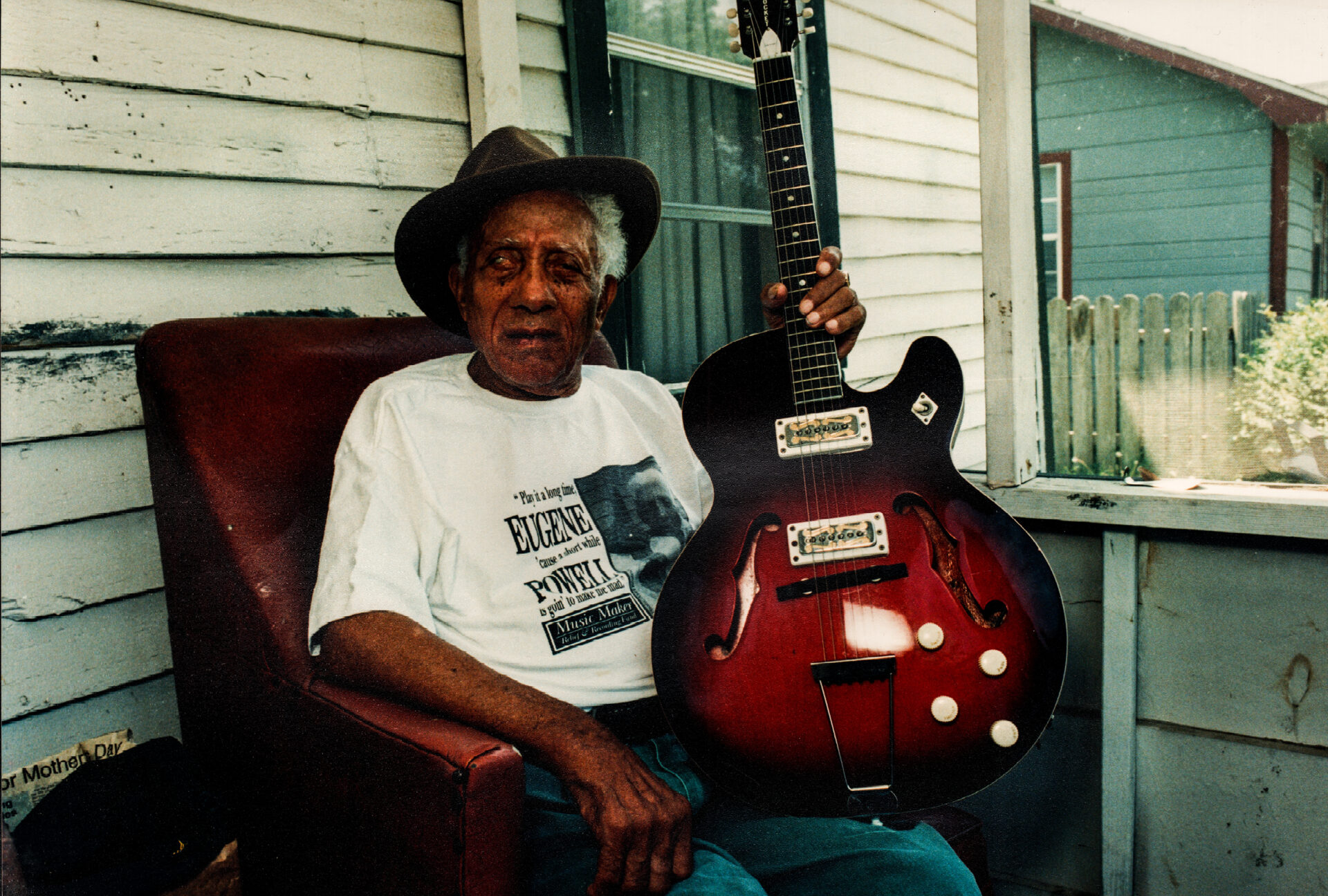
Oxford-based musicians Eric Deaton, Davis Coen and Tyler Keith will lend their considerable talents to the fundraising efforts of the Mt. Zion Memorial Fund on Thursday September 3 at the Blind Pig in Oxford.
All proceeds from the benefit concert, which starts about 9:00 p.m., will go towards resurfacing and raising the sunken and sullen headstone of versatile pre-World War II Delta blues musician Eugene Powell, who in 1936 recorded six songs for Bluebird Records in New Orleans at the St. Charles Hotel under the pseudonym “Sonny Boy Nelson.” Installed on November 4th, 1998 at Evergreen Cemetery in Metcalfe, Mississippi, the flat headstone of Eugene Powell has suffered from the debilitating effects of weathering, particularly due to its sunken position into the earth. Deaton, Coen and Keith hope to raise enough money to complete the restoration of the musician’s burial site.
Powell was born in the Hinds County town of Utica on December 23, 1908. He was the product of a brief interracial liaison between a white farmer and his mother, Rosie Taylor, a domestic worker and jook joint operator who played in a seven-piece band. At the age of seven, his mother remarried and moved to the E.F. Lombardy plantation outside of Shelby in Bolivar County. She purchased bought a guitar for him through the Sears Roebuck catalog for three dollars. Powell later alleged to have learned to play in only a few days and immediately began playing at local parties. In the early 1920s, Powell and his mother moved to Hollandale, where he became a fixture on the front porch of the very musical family of Henderson Chatmon, whose sons Armenter (Bo Carter) and Sam Chatmon, along with Walter Vinson, later formed a very popular band called the Mississippi Sheiks. Powell also spent some time performing with, by many accounts, the best guitar player in the Delta, Richard “Hacksaw” Harney.

Though he came to be revered by many musicians for his rhythmic thumb and meandering fingerpicking, Powell was known for his love of customizing his instruments by adding extra strings or pie plates to create a resonator sound. His guitar was a Silvertone, in which he inserted an aluminum resonator similar to those found on National guitars. Inspired by the twelve-string models, he added a seventh string and tuned it an octave higher than conventional tuning. He played lead most of the time when accompanied by another musician, but he also learned how to play a host of musical instruments, including banjo, horn, mandolin, violin, and harmonica.
In 1936, Powell traveled to New Orleans and recorded six sides for Bluebird Records, including such classics as “Street Walkin’ Woman” and “Pony Blues.” He also provided guitar accompaniment on four songs of his vocalist wife, Mississippi Matilda, and ten songs for harmonica player Robert Hill. Powell would not record again for almost thirty-five years. In 1970, Gene Rosenthal and Mike Stewart recorded some songs in Greenville for Adelphi Records. In 1972, he performed alongside many of his former playing partners at the Festival of American Folklife in Washington D.C. Alan Lomax included Powell in his 1978 documentary The Land Where Blues Began. While he went on to perform at numerous other blues festivals before his death in November 1998, Italian Albatross Records released Powell’s only full-length album, The Police in Mississippi Blues, in 1975.
Eric Deaton: Soon after high school graduation in North Carolina, Deaton moved to Mississippi and became a disciple to blues prophets such as James “T-Model” Ford and Eugene Powell. “Those families,” he asserted, “were the only people I knew in Mississippi, but they were who I wanted to know. Being able to play music with them made me the musician I am today.” [Eric is listed on the approved list of musicians for Mississippi Arts Commission—Go write a grant and get the state to pay him to play in your community.]
Tyler Keith: What to Say? A former Fat Possum punk rocker who ushered some preacher’s kids down the Old Mexican Blackbird trail and ended up hanging around town with a lascivious, drifter known only as Kid Twist. He is also an eminent scholar of the violent encounters that occurred in northwest Florida as a result of the moonshine business. He is playing at the fundraiser because he is a cool fella who genuinely loves to play—listen and watch his “Crack Whore Blues”
Davis Coen: this Charleston-native and contemporary country blues guitarist/singer/songwriter started touring either as a solo guitar & vocal act, or accompanied by a small rhythm combo, in his teens, performing at venues throughout the southeast and mid-South. He has also recorded a host of albums that are nothing short of well-crafted blues gems.http://daviscoen.com/
All donations are tax deductible. Any excess funds will go towards the upkeep and maintenance of markers and cemeteries. There are two ways to donate to the Mt. Zion Memorial Fund:
Donate online via PayPal. Send checks to Mt. Zion Memorial Fund via regular mail: P.O. Box 1114, Oxford, MS 38655, ATTN: EUGENE POWELL
Article by T. DeWayne Moore, a historical consultant in litigation research at the University of Mississippi

